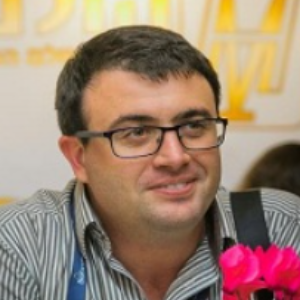Title : Novel Ir(III) PC(sp3)P bi functional catalysts for additive free production of H2 by dehydrogenation of neat Formic acid Experimental and theoretical study
Abstract:
Reversible storage of hydrogen in the form of stable and relatively harmless chemical substances such as formic acid (FA) is one of the corner-stones of fossil fuels-free economy. Recently, Ru(III)-PC(sp3)P (where PC(sp3)P = modular dibenzobarrelene-based pincer ligand possessing a pendant functional group)[1] complex has been reported as a mild and E-selective catalyst in semihydrogenation of alkynes with stoichiometric neat formic acid. Discovery of the additive-free protocol for dehydrogenation of FA launched further studies aiming at the rational design of highly efficient catalysts for this reaction operating under neutral conditions. We now report the results of our investigation on a series of bifunctionl PC(sp3)P complexes equipped with different outer-sphere auxiliaries, that allowed to identify an amine-functionalized Ir(III)-PC(sp3)P complex, as a clean and efficient catalyst for the dehydrogenation of neat FA. The catalyst is suitable for fuel cells applications demonstrating TON up to 5*105 and TOF up to 2*104 h-1. In addition to the practical value of the catalyst, experimental and computational mechanistic studies provide rationale for the design of improved next-generation catalysts.



